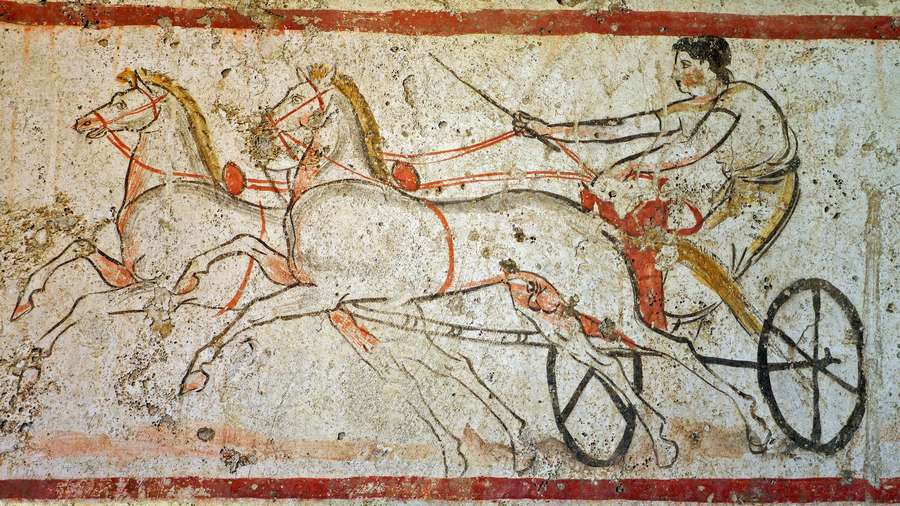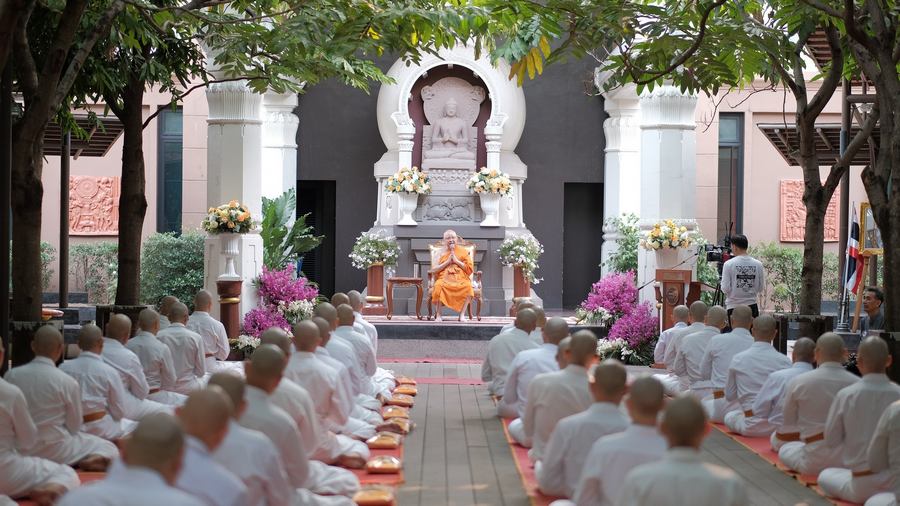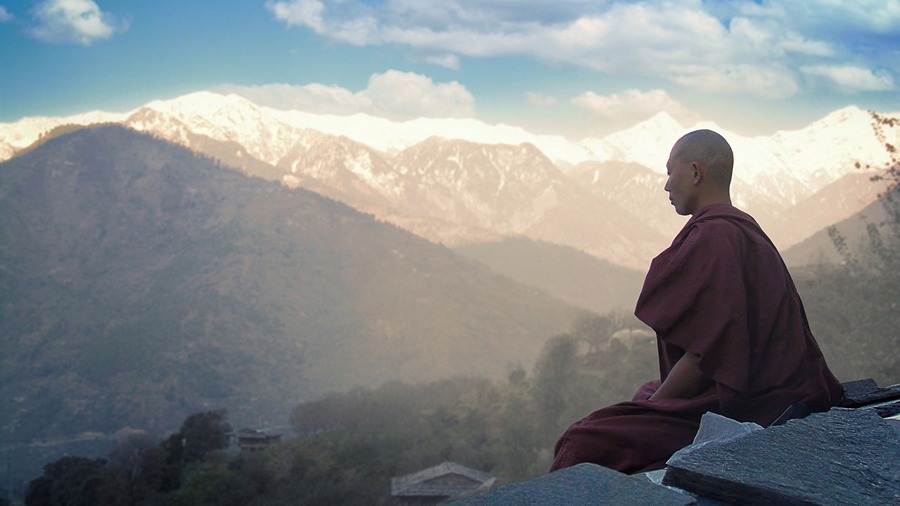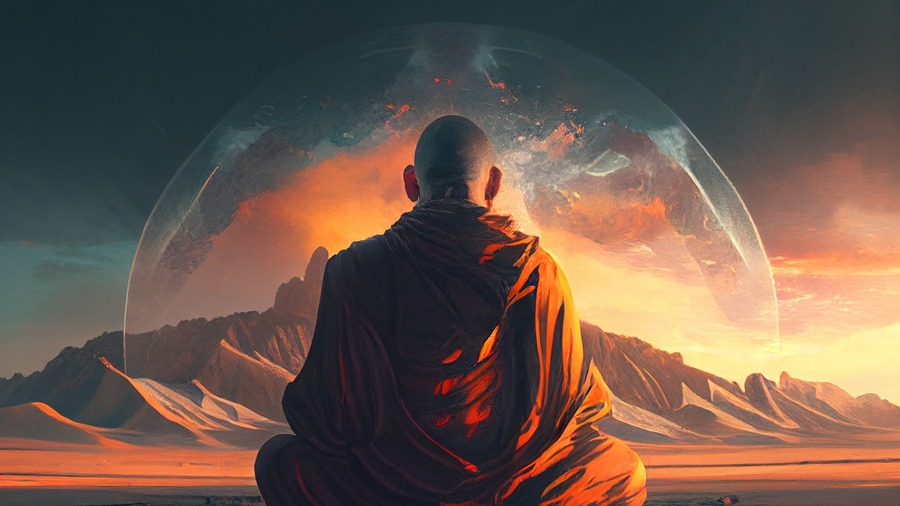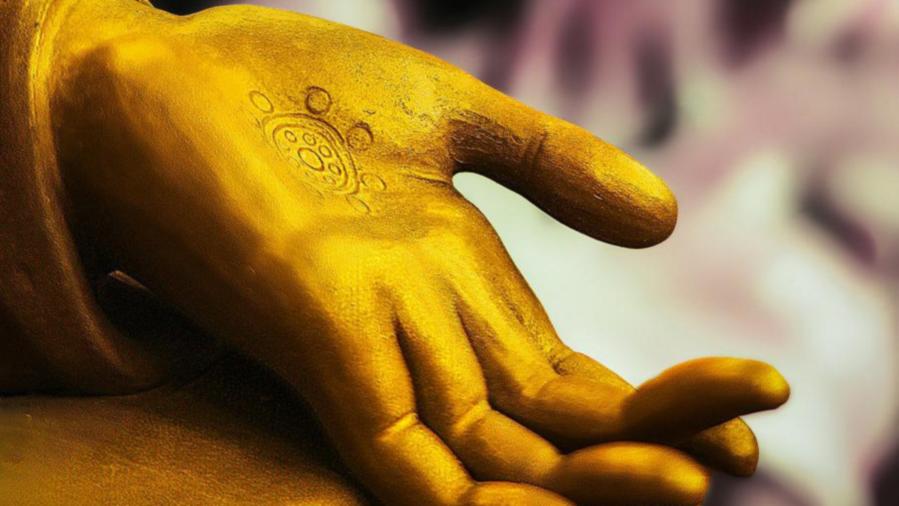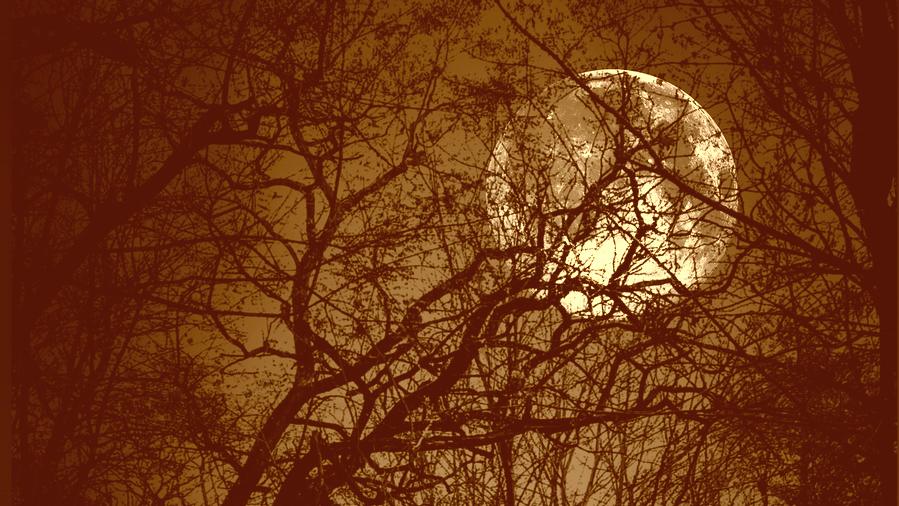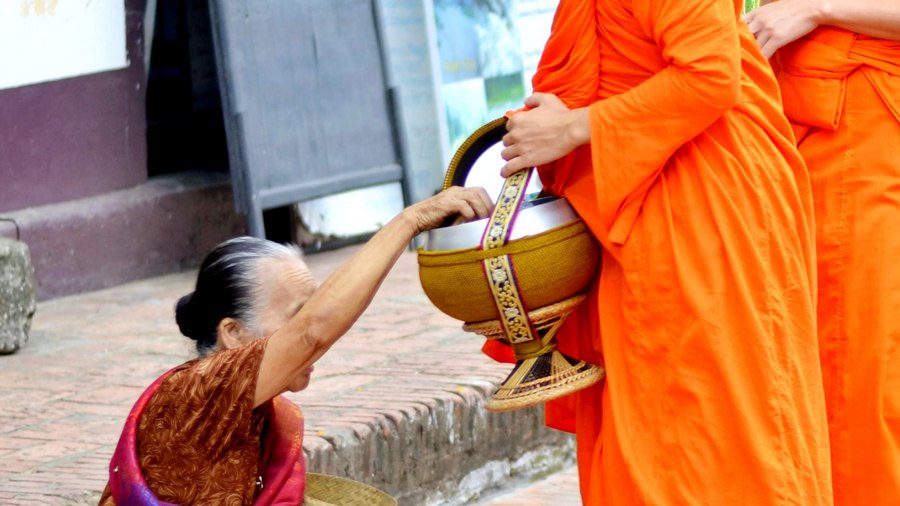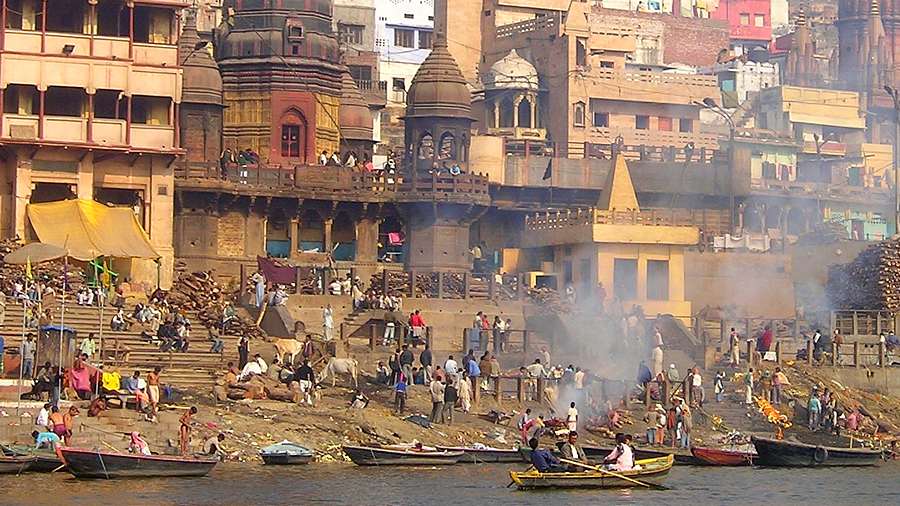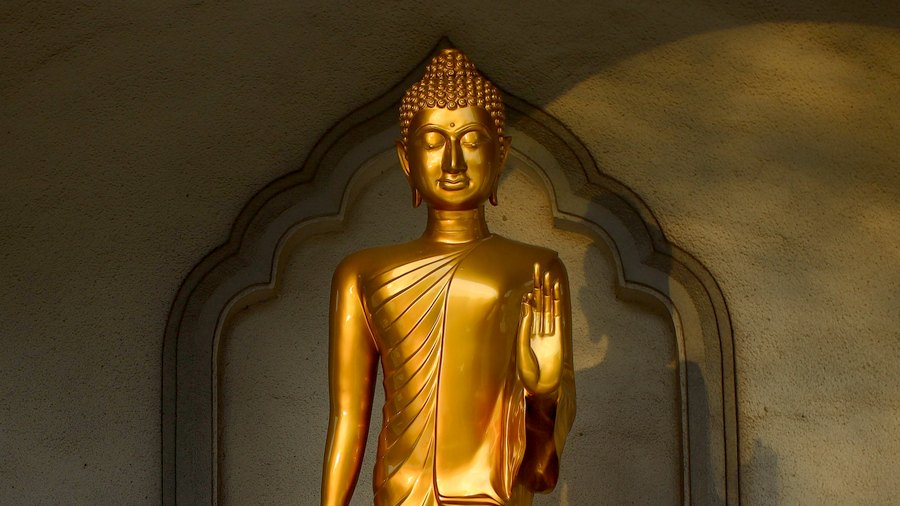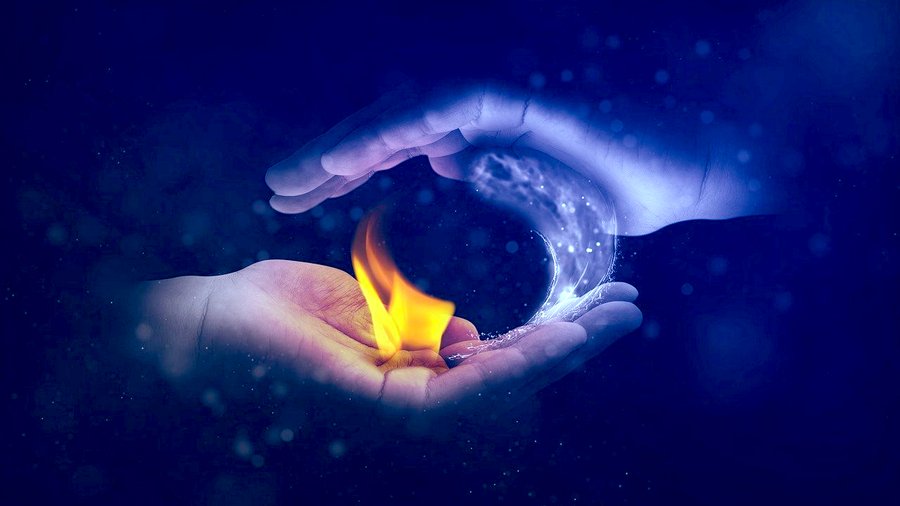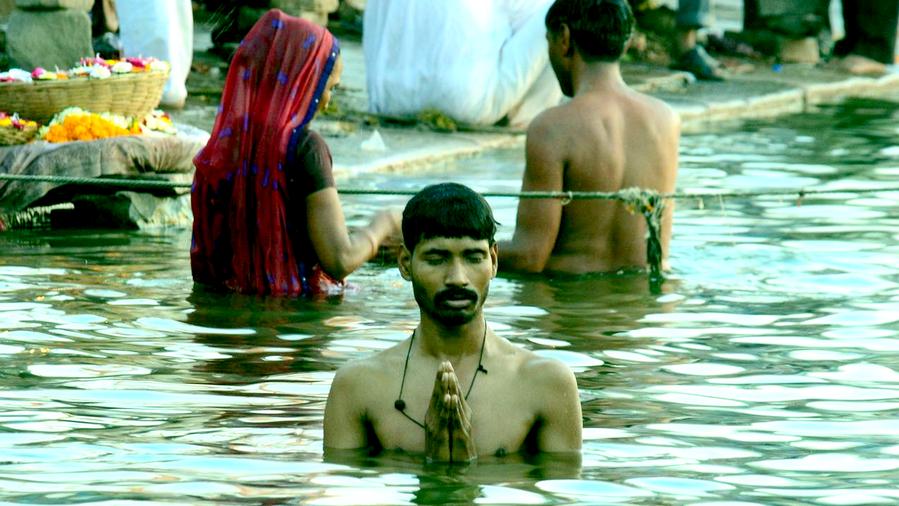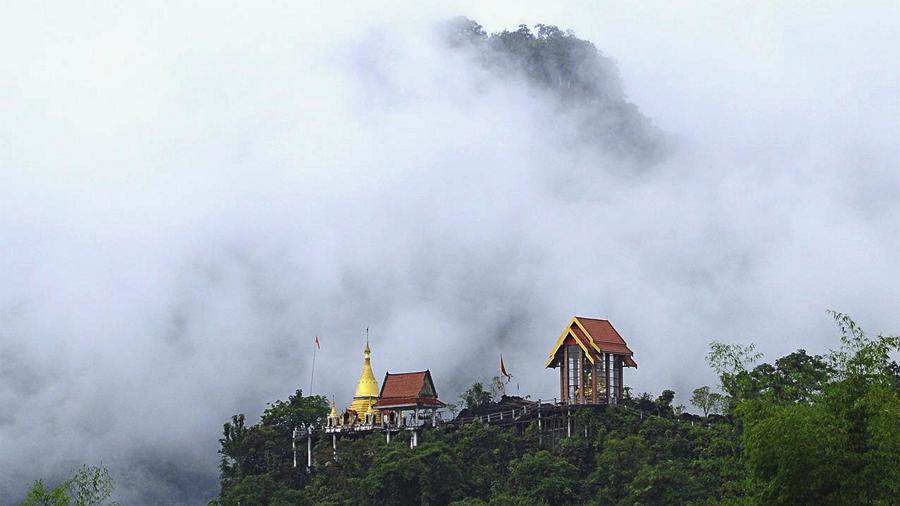A Brahmin was crying over his dead son’s grave when he saw a grieving deva who was disguised as a young man.
Brahmin:
My dear child, you are very handsome, wearing polished earrings, garlands, and sandalwood cream. You are weeping, holding your head in your hands in the middle of this forest. Why are you crying so sadly?
Deva:
I have received a bright golden chariot, but it does not have wheels. That is why I am so sad. I am about to commit suicide.
Brahmin:
Oh dear boy, tell me, what kind of wheels do you need? Should they be made of gold, jewels, rubies, or silver? I will give you a pair of wheels made from anything.
Deva:
We can see the sun and moon right here. It would be great if my chariot could have them as wheels.
Brahmin:
Oh, dear boy, you are indeed foolish. You seek something that cannot be obtained. I am sure that you will die from sadness because it is impossible to get the sun and moon as your wheels.
Deva:
But wait a minute. We can see the sun and moon moving in the sky. We can see their color and tracks. But when someone dies, one can never see him again. So, who is more foolish, you or me? You are crying over your dead son, who cannot even be seen, and I am crying over something that can at least be seen.
Brahmin:
Oh, dear boy, what you just said is very true. Of the two of us, I am the greater fool. I am crying to get my dead son back, like a childish boy crying to obtain the moon.
My heart was burning with sadness over the death of my son, like when ghee is poured onto a fire. But now, all my sorrow has been extinguished as if I had been sprayed with water. I was struck with an arrow of grief, but you have removed it from me, my dear boy. Having heard your advice, I have become tranquil and cool, with the arrow of sorrow removed. I no longer grieve or weep.
Are you a god, a divine musician, the god Sakka, or someone’s son? Who are you?
Deva:
Your son has been cremated in this cemetery. You are weeping over his remains. I am that son of yours. Having done a meritorious deed, I was reborn in the Tavatimsa Heaven as a deva.
Brahmin:
We have never known you to give a small or large gift in charity. We have never known you to observe the Five or Eight Precepts. What kind of meritorious action did you do to go to heaven?
Deva:
Do you remember when I was very sick and lying sadly on a bed outside our house? One day, all of a sudden, I saw the Supreme Buddha who had great wisdom and a pure mind, and who had realized everything about this world.
I was very happy and had confidence when I saw him. I quickly worshiped him. That was the only meritorious action I did to have come to this heaven.
Brahmin:
It is wonderful! Just mere worshiping has resulted in a great happiness. Without delay, on this very day, I happily place confidence in the Buddha. I go for refuge to the Buddha.
Deva:
That is exactly what you should do. From this very day, go for refuge to the Supreme Buddha, the Supreme Dhamma, and the Supreme Sangha with a confident mind. Follow the Five Precepts honestly without breaking any of them.
Stop killing any beings, never steal, never drink alcohol, never lie, never commit sexual misconduct, and be content with your own wife.
Brahmin:
Oh Deva, you really wish for my well-being. You have been very helpful to me. From today onward, you are my teacher. I will do all the things you advised me to do. With a confident mind I go for refuge to the Supreme Buddha, the excellent Dhamma, and the disciples of the Great Teacher – the Noble Sangha. I will stop killing living beings, never steal anything, never drink alcohol, never lie, and never commit sexual misconduct. I will be content with my own wife.
To learn the whole background story of Maṭṭakuṇḍali’s sad human life and his father’s horrible actions, read the commentary to Dhammapada verse 2 on ancient-buddhist-texts.net.
Read this translation of Vimānavatthu 7.9 Maṭṭakuṇḍalī Sutta: Mattakundali’s Mansion by Ven. Kiribathgoda Gnananda Thero on SuttaFriends.org. Or explore the Pali on DigitalPaliReader.online.
Or read a translation in Deutsch, 日本語, සිංහල, or Tiếng Việt. Learn how to find your language.
You can find the entire translation of the Vimanavatthu: Stories of Heavenly Mansions available on SuttaFriends.org.

